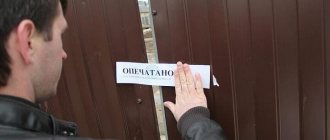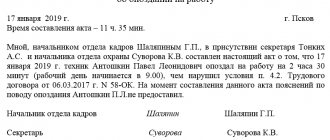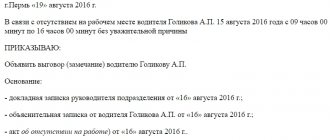What is house arrest
House arrest is a coercive measure in criminal proceedings designed to prevent possible interference in finding out the truth in a criminal case. This is one of the most severe preventive measures. Her choice is due to the impossibility of using a more humane measure, for example, bail or recognizance not to leave.
House arrest is isolation from society of the suspect/accused in a home where he remains permanently on any legal basis (in his own, rented home, etc.).
Provided that he needs hospital treatment, he can be isolated in a medical facility. The arrested person is also subject to a number of prohibitions.
Grounds for house arrest
The grounds for choosing a preventive measure in the form of house arrest are practically the same as for detention. The difference is that it is applied regardless of the type and size of the sanction for the crime committed.
In practice, the investigation requests such a court decision in situations where it is impossible to apply a written undertaking not to leave, but detention is too strict a measure. Thus, house arrest is a kind of intermediate option: the accused is, as it were, under arrest, with many restrictions and under serious control, but in the comfort of his own home.
In a number of cases, house arrest is used only because it would be necessary, but detention cannot be chosen. For example, there are many articles of the Criminal Code of the Russian Federation (Part 1.1 of Article 108 of the Code of Criminal Procedure of the Russian Federation) included in the list of crimes for which the use of detention in the field of business activity is expressly prohibited. If there is a possibility that the suspect/accused will hide from the investigation, from the trial, there is essentially nothing else left - only house arrest. Alas, in Russia, bail as a preventive measure has not gained much popularity.
In addition to the above, house arrest may be applied in the following cases:
- changing the preventive measure to a more lenient one compared to detention;
- changing the preventive measure to a more stringent one compared to a recognizance not to leave, a ban on certain actions or bail, if the suspect/accused has violated the terms of these preventive measures.
Rules for crediting the term of punishment
We must understand that house arrest is a preventive measure, not a punishment. But still, the time spent under house arrest is subsequently included in the sentence that will be imposed by the verdict.
That is, in fact, the beginning of serving the sentence is associated with the beginning of the term of house arrest. But this counting occurs according to certain rules - one day of imprisonment is two days of being under house arrest.
This calculation began to apply in July 2021. Previously, the “one to one” principle was applied.
What does judicial practice show under this article?
House arrest, as a measure of influence on criminals, began to be used quite recently. Like any innovation, it is constantly criticized, because the procedure for detaining defendants at home has many shortcomings.
Terms of detention of accused and suspects under the Code of Criminal Procedure of the Russian Federation, Article 109
In most cases, a judge makes a decision to place a person under house arrest for crimes for which the maximum penalty does not exceed a three-year prison term. According to the legislator, such criminals do not pose a particular danger and to correct them, suppression in the form of restrictions on fundamental constitutional rights will be sufficient.
For crimes that require a more lenient sentence, the legislator imposes a written undertaking not to leave or bail.
Recently, very often, in order to control the accused, he is placed under house arrest with the obligatory condition of wearing an electronic bracelet. This electronic device is not visible to others, and it does not cause discomfort to the “owner”. At the same time, it sends a detailed report on the movement of the subject to the regulatory authorities.
This innovation allows regulatory authorities to promptly respond to violations of restrictions by suspects and stop them. The control body also does not need to come in person to check the place of residence of the convicted person, and this in turn leads to procedural savings.
Judicial practice on the issue of house arrest shows quite good results, because by keeping them at home, the legislator limits the ability of the accused to influence other participants in the criminal process, and also makes his further criminal activity impossible. Without resorting to harsh sanctions, the judge has the opportunity to effectively influence the offender.
What decisions are most often made under this article?
Most often, criminals who have committed official crimes or atrocities involving property are placed under house arrest. An example of a situation would be forgery of documents by an official. The maximum sentence for violating Article 327 of the Criminal Code is imprisonment for up to two years without qualifying charges. The judge took into account the gravity of the crime and made a decision to place him under house arrest. After being under house arrest for one month, the accused petitioned to replace the sanction with bail. Since the defendant did not violate the established rules, the judge approved the petition and released the defendant on bail.
According to statistics, people who do not violate a judge’s decision are often released on bail. The fact is that the judge himself understands the problems of being under house arrest for a long time. The main ones are outdoor walks and food necessary for the life of the defendant. According to the general rules, the accused must be taken out for a walk by correctional service workers, and this requires a lot of time for the supervisory authority, which he can spend on solving other, equally important tasks.
How is house arrest elected?
House arrest is ordered only by the court based on the results of consideration of the petition of the investigator or interrogator investigating the crime.
Moreover, the issue of its application can be considered at any stage of criminal proceedings, that is, both during the investigation and during the consideration of a criminal case by the court.
Conditions of use
In order for house arrest to be applied, under Art. 97 of the Code of Criminal Procedure of the Russian Federation it is necessary:
- A criminal case where a person has the status of a suspect or accused.
- Availability of data giving grounds to conclude that the accused or suspect:
- will influence witnesses and eyewitnesses, may get rid of evidence or in some other way interfere with the proceedings;
- will continue to commit crimes;
- may hide.
In addition to those indicated, it is mandatory under Art. 99 of the Code of Criminal Procedure of the Russian Federation, other circumstances are taken into account:
- The severity of the crime committed.
- Information about the identity, age of the suspect/accused.
- His state of health, whether he has a family, what he does.
- Other circumstances, for example, behavior, attitude towards the crime, etc.
Court statement
Based on the results of consideration of the petition for house arrest, the court makes a decision. It must describe the conditions of execution, among them:
- residential premises in which the suspect/accused will stay;
- length of stay in custody;
- options for how to contact the investigator, interrogating officer and investigator;
- prohibitions imposed on the arrested person.
Duration of house arrest
If the court considers the petition for house arrest to be satisfied, it may last up to 2 months, which are counted from the issuance of the decision.
Maximum renewal periods
If the investigation cannot be completed during this period, house arrest may also be extended by the court under certain Art. 109 of the Code of Criminal Procedure of the Russian Federation in order:
0.5 years
Up to six months in cases of any crimes.
1 year
Up to a year for those accused of grave and especially grave acts, if the investigation is particularly complex.
1.5 years
Up to 1.5 years in exceptional situations for those accused of especially serious crimes.
The period during which a person was detained in a pre-trial detention center (pre-trial detention center) is included in the period of house arrest. This means that if a person was initially in custody, and subsequently this preventive measure was replaced by house arrest or vice versa, their total duration also cannot be longer than these limits. In this case, 1 day in custody is counted as 2 days of house arrest (Part 3.4 of Article 72 of the Criminal Code of the Russian Federation).
Extension of house arrest beyond 1.5 years is not allowed. Upon its expiration, the accused is immediately released, except in situations in which an extension of the term is necessary:
- To complete familiarization of the accused with the materials of the completed case.
- For the prosecutor (whether to send the case to court) or the court (whether to accept proceedings) to decide on the case.
- To resolve by a higher prosecutor or court a complaint to return a completed case to the investigative body, if a lower prosecutor or court does not consider it possible to forward or consider the case.
Reasons for extension
The grounds for extending the term of house arrest are the same as the conditions for his election. Only the courts that initially imposed this preventive measure should more carefully and carefully evaluate the exceptional need for its extension and the likelihood of applying another less restrictive measure.
Vera Viktorovna Dolganina
Practicing lawyer with more than 10 years of experience.
Ask a Question
In practice, investigators and interrogators rarely apply for an extension immediately for the maximum permissible period, but monthly or at other intervals go to court with petitions in order to extend it for 30 days or longer, but within the possible period.
The procedure for electing house arrest
The decision on house arrest is made by the court. To consider the issue, the investigator (inquiry officer) initiates a corresponding petition before the court - issues a resolution, which is preliminarily agreed upon by the investigator with his supervisor, and by the inquirer - with the prosecutor.
A special court hearing is held to select a preventive measure. Usually the issue is resolved within 1-2 hours, sometimes a little more. The meeting is attended by an investigator (inquiry officer), a prosecutor, a suspect (accused), his lawyer and, possibly, a legal representative. The position of the investigation (inquiry) is heard first, then the prosecutor’s office. The defense either agrees with house arrest, or, which happens much more often, petitions the court to choose a more lenient measure of restraint. There are few alternatives here - either bail or a ban on certain actions.
If a preventive measure is chosen against a detainee as a suspect, materials from the investigation (inquiry) must be received by the court no later than 8 hours before the expiration of the deadline (48 hours). The court is also given 8 hours to consider the issue, but from the moment the materials are received.
Cancellation and modification of house arrest
General rules for canceling or changing the chosen preventive measure are prescribed in Art. 110 Code of Criminal Procedure of the Russian Federation. The main ones are:
- cancellation if there is no further need;
- change to a more strict or more lenient one - under the circumstances described in the above-mentioned Articles 97, 99 of the Code of Criminal Procedure of the Russian Federation.
House arrest is canceled on the basis of the relevant decision of the investigator, inquiry officer or court, which is handling the criminal case.
A more severe preventive measure in relation to house arrest is only detention.
A change to this measure can also occur exclusively by court order at the request of the investigator or inquiry officer (during the investigation) or the Criminal Investigation Department (during the judicial review). Such a decision may be made in the following circumstances:
- Failure to comply with the conditions of house arrest.
- Disagreement with the use of technology. means of control.
- Intentional damage, destruction, or violation of integrity.
- Performing actions that lead to disruption of the normal operation of equipment.
Terms of house arrest
The duration of the preventive measure is determined by the court. According to the law, house arrest can be established for a period of no more than two months. It applies to suspects or accused persons. If the preliminary investigation cannot be completed within two months, and there are no grounds for canceling or changing the preventive measure, then house arrest may be extended for the same period. But again, only by court decision.
The maximum term of house arrest, according to the law, is 1.5 years. A longer preventive measure is illegal; the court does not have the right to establish it. In other words, the two-month period of house arrest can be extended again and again until the total time is 1.5 years.
This preventive measure is equivalent to detention in a pre-trial detention center. For this reason, if a citizen is sentenced to prison by a court decision, the time of house arrest must be deducted from the total term assigned to the convicted person. For example, a person was under investigation with such a preventive measure for a year, he was sentenced to 5 years, accordingly, he will be imprisoned for 4 years.
Prohibitions during house arrest
Based on the essence of house arrest, the suspect or accused is prohibited from leaving the premises, which are determined by the court as the place of execution of this preventive measure. When making an appointment, the court provides a list of some situations in which:
- the arrested person can leave the house (walk, study, work, etc.), the time when he can do this;
- leaving the place of house arrest is strictly prohibited, for example, at night.
An exhaustive list of other prohibitions for a person subjected to house arrest is listed in paragraphs 3-5 of part 6 of Art. 105.1 Code of Criminal Procedure of the Russian Federation. They can be used all at once, or some.
A person under house arrest may be prohibited from:
- Communicate with certain people. The court shall indicate information allowing to identify these persons.
- Send and receive postal and telegraphic items.
- Use communication tools and the Internet. By imposing such a ban, the court also indicates situations when their use is permitted, for example, during distance learning for receiving and transmitting information.
- Asking for the expansion of permitted actions, the removal of some of the prohibited ones, is possible and quite promising, if the previously imposed restrictions were unquestioningly observed, when the court considers a petition to extend the period of house arrest.
What cannot be prohibited?
A person subject to house arrest does not have the right to restrict the use of telephone communications:
- To call emergency medical services, law enforcement officers, and emergency services if an emergency occurs.
- To communicate with the regulatory authority, the person investigating the case.
Each such call must be reported to the UII.
On choosing a preventive measure in the form of house arrest
The most common types of preventive measures in the Russian Federation provided for by criminal procedure legislation are recognizance not to leave and detention. The preventive measure in the form of detention is the most severe type provided by law.
As an alternative to detention, starting January 1, 2012, a preventive measure in the form of house arrest has been applied.
The grounds and procedure for applying a preventive measure in the form of house arrest to suspects and accused have been adjusted. So, according to Part 1 of Art. 107 of the Criminal Code of the Russian Federation, house arrest is elected by a court decision in relation to a suspect or accused if it is impossible to apply another, milder, preventive measure and consists of keeping the suspect or accused in complete or partial isolation from society in the residential premises in which he lives as the owner , the employer or on other legal grounds, with the imposition of restrictions and (or) prohibitions and the exercise of control over him. Taking into account the state of health of the suspect or accused, a medical institution may be designated as the place of his detention under house arrest.
House arrest is elected for a period of up to two months. The term of house arrest is calculated from the moment the court makes a decision to select this preventive measure against the suspect or accused.
The period of house arrest includes the time spent in custody. The total period of house arrest and detention, regardless of the sequence in which these preventive measures were applied, should not exceed the maximum period of detention established by Article 109 of the Code of Criminal Procedure of the Russian Federation.
The judge's decision is sent to the person who filed the petition, the prosecutor, the supervisory authority at the place of serving the house arrest, the suspect or the accused and is subject to immediate execution.
The court, taking into account information about the identity of the suspect or accused and the actual circumstances when choosing house arrest as a preventive measure, may prohibit and (or) limit him:
1) leaving the premises in which he lives;
2) communication with certain persons;
3) sending and receiving postal and telegraphic items;
4) use of communication means and the Internet information and telecommunications network.
Depending on the severity of the charge and the factual circumstances, the suspect or accused may be subjected by the court to all of the above prohibitions and (or) restrictions, or some of them. Restrictions may be changed by the court at the request of the suspect or accused, his defense attorney, legal representative, as well as the investigator or interrogating officer in charge of the criminal case. A suspect or accused cannot be limited in the right to use telephone communications to call emergency medical services, law enforcement officers, emergency services in the event of an emergency, as well as to communicate with a regulatory authority, an inquiry officer, or an investigator. The suspect or accused informs the supervisory authority about each such call.
The court decision on choosing a preventive measure in the form of house arrest indicates the conditions for the execution of this preventive measure (the place where the suspect or accused will be located, the period of house arrest, the time during which the suspect or accused is allowed to stay outside the place of execution of the preventive measure in the form of house arrest). arrest, prohibitions and (or) restrictions imposed on the suspect or accused, places that he is allowed to visit).
Control over the presence of a suspect or accused at the place of execution of a preventive measure in the form of house arrest and over his compliance with the prohibitions and (or) restrictions imposed by the court is carried out by the federal executive body exercising law enforcement functions, control and supervision functions in the field of execution of criminal penalties in relation to convicted persons . For the purpose of control, audiovisual, electronic and other technical means of control may be used, the list and procedure for use of which are determined by the Government of the Russian Federation. The procedure for exercising control is determined by regulatory legal acts approved by the federal executive body, which carries out the functions of developing and implementing state policy and legal regulation in the field of execution of criminal penalties, together with the Investigative Committee of the Russian Federation and the federal executive bodies, which include the bodies preliminary investigation, in agreement with the Prosecutor General's Office of the Russian Federation.
If, for medical reasons, the suspect or accused was taken to a health care facility and hospitalized, then until the court resolves the issue of changing or canceling the preventive measure against the suspect or accused, the prohibitions and (or) restrictions established by the court continue to apply. The place of execution of the preventive measure in the form of house arrest is the territory of the relevant health care institution.
The suspect or accused is delivered to the inquiry body or the preliminary investigation body, as well as to the court, by a vehicle of the controlling body.
Meetings of a suspect or accused, who are under house arrest in conditions of complete isolation from society, with a defense lawyer or legal representative take place at the place where this measure of restraint is being executed.
If a suspect or accused, in respect of whom house arrest has been chosen as a preventive measure, violates the terms of execution of this preventive measure, the investigator or interrogating officer has the right to file a petition to change the preventive measure. If a violation of the conditions of execution of a preventive measure in the form of house arrest was committed after the appointment of a trial, this preventive measure may be changed upon the proposal of the supervisory authority.
How is the execution of house arrest controlled?
The procedure for monitoring suspects and accused persons subject to house arrest was approved by a joint order of law enforcement agencies and the Ministry of Justice dated February 11, 2016. A court order on house arrest is immediately sent to the department of the Criminal Investigation Department at the place where it will be executed.
Having received this decision, the Criminal Investigation Department immediately begins to monitor that the arrested person is in the place assigned to him and observes the prohibitions.
Start of control
When visiting a person under house arrest, authorized employees of the Penitentiary Inspectorate check his documents, the presence of a passport (if he has one, it will subsequently be confiscated by the migration service or the investigator/interrogator) and draw up a questionnaire for him. During the initial conversation, the following is explained:
- conditions of house arrest;
- the possibility of changing the restrictions of house arrest to a more stringent measure of restraint for violations or to a more lenient one;
- the right of the Inspectorate to freely conduct inspections at any time of the day, with the exception of night and at least 2 times a week;
- possibility of using technical means of control.
Controls
To carry out control, the Inspectorate may make a decision on the use of technical means of control (audiovisual, electronic and other), formalized by a resolution of the head of the inspection.
If this happens, the person under house arrest is explained the responsibility in case of damage to the equipment, he is given a reminder about safety measures and rules for its operation, and an acceptance certificate for the devices is drawn up.
The list and rules for using these devices are established by Decree of the Government of the Russian Federation No. 134 of February 18, 2013.
Personal controls
- Electronic bracelet installed on the body. It is designed for long-term wear (more than 3 months) and is protected from damage.
- Stationary (installed in the home - place of house arrest) and mobile (comes with a bracelet) control devices. They receive signals from the bracelet.
- Repeater is a device that increases the reception area of signals from an electronic bracelet to control devices. Installed in the room where the preventive measure is carried out.
- A personal tracker is a device that tracks location and is installed on the body.
Audiovisual control means
They are placed in housing designated by the court as the place of house arrest, only with the written consent of the persons living with the suspect or accused. They can also be provided for tracking during periods of stay outside the home.
Technical means
Designed to ensure the operation of remote monitoring devices, the collection and storage of information from them.
The necessary means of control are established by authorized employees of the Criminal Enforcement Inspectorate, based on the prohibitions imposed by the court and technical feasibility.
Statistics
Statistics show that house arrest is not as “popular” a preventive measure compared to detention.
Of course, it is more convenient for the investigation and the court to work with the accused and defendants in custody. But still, the number of facts of application is also quite impressive. Thus, in the first half of last year, the courts considered 3,771 requests for house arrest, 3,336 were recognized as justified and satisfied. For comparison, 64,126 petitions to choose detention as a coercive measure were considered, a positive decision was made on 54,650. 14,309 petitions to extend its term were also considered, 13,703 were satisfied. A change to another previously applied measure to house arrest took place in 3,267 cases.
Did the article help you?
Not really









